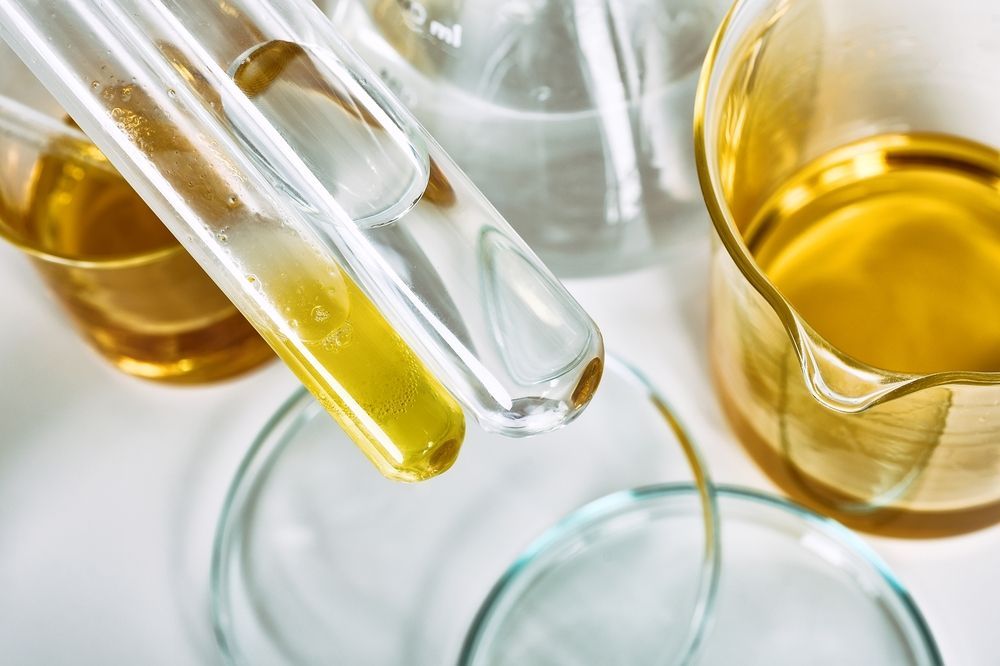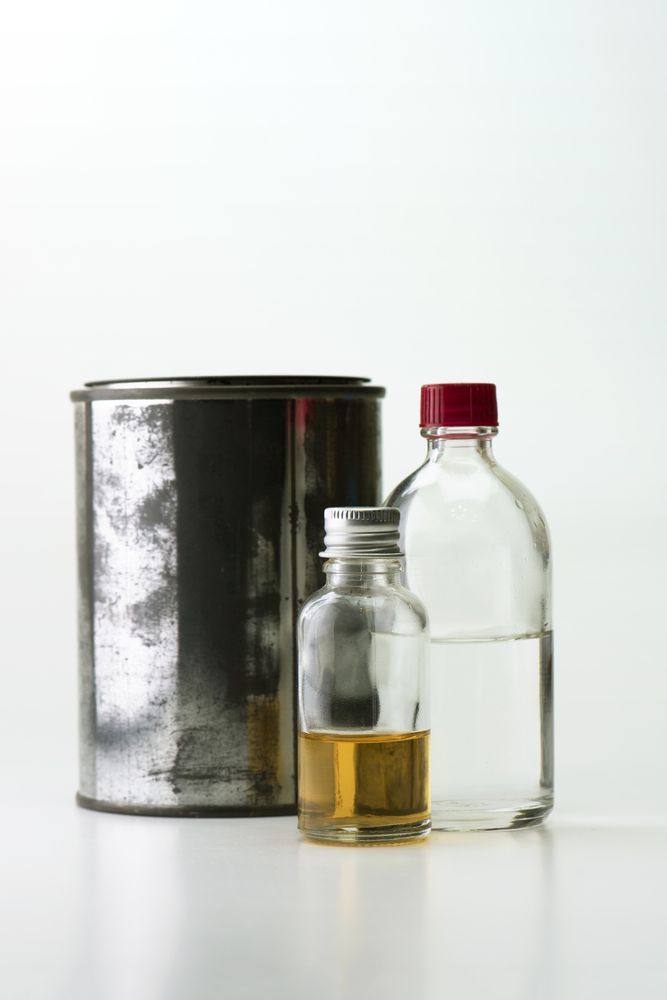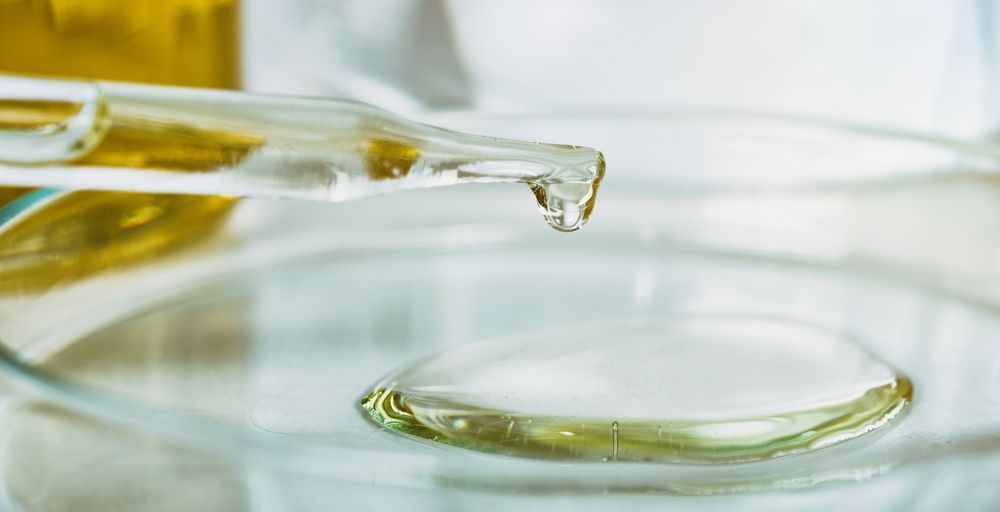Denatured Alcohol vs. Acetone: What Are the Differences?
Written by: Vertec BioSolvents

Removing stains or paint is often an exhausting job, particularly if you're not using the right type of solvent. While you want a solution that makes the job easy, you also need something that won't damage surfaces or make people sick. Denatured alcohol and acetone are go-to solvents for these types of applications, but they also have significant drawbacks.
When deciding between denatured alcohol and acetone, it's important to understand how they're similar and what sets them apart. In this article, you'll learn everything you need to know about both substances—and why bio-based alternatives are often a better option.
What Is Denatured Alcohol?
Denatured alcohol is a combination of alcohol and additives that make it unsafe for consumption. It is commonly combined with water or other liquids to form a chemical solvent.
Common Uses & Applications
In most cases, denatured alcohol is used as a fuel source, cleaning agent, or solvent. It can thin paints, varnishes, and other coatings, making it useful when manufacturing:
- Polishes
- Lacquers
- Surface coatings
- Dyes
- Inks
- Rubber
- Plastics
Denatured alcohol is also effective at removing stains, dirt, grease, and adhesives from metal, plastic, and wood.
Properties
Also referred to as methylated spirits, denatured alcohol is a clear liquid with a pleasant smell. It's created by mixing ethanol with additives, such as:
- Methanol
- Benzene
- Pyridine
- Isopropyl alcohol
These additives make the alcohol toxic, so it sometimes contains dye indicating that it's unsafe to ingest. Like most substances containing alcohol, it's highly flammable and can easily ignite when exposed to sparks.
What Is Acetone?
Acetone is composed of carbon, hydrogen, and oxygen atoms. It's found in many places in nature, including volcanic gases and plants, but it's also a popular solvent for manufacturing and cleaning.
Common Uses & Applications
Because of its high solvency power, acetone is often used to remove paints, adhesives, and resins. It has applications in multiple industries, including:
- Paper preparation
- Pharmaceuticals
- Plastic production
- Automotive part degreasing
- Lacquer thinning and production
Because of its wide-ranging use, acetone is present in many places, from household products to vehicle exhaust to landfill sites.
Properties
Acetone is a colorless, organic solvent with a subtle but distinct smell. Although it's less toxic than denatured alcohol, it's still unsafe for consumption, and its vapors can cause nose, throat, and skin irritation.
Using acetone is convenient because it evaporates quickly when exposed to air. However, it's also highly combustible, making it hazardous when it comes into contact with sparks, flames, or excessive heat.
Similarities Between Denatured Alcohol & Acetone
The most important link between acetone and denatured alcohol is the fact that both of them can break down a variety of oily substances. As a result, businesses can use them for the same purposes, including degreasing, cleaning, and paint thinning. As clear, colorless liquids, they're also similar in appearance.
Differences Between Denatured Alcohol & Acetone
Despite their shared purposes, acetone and denatured alcohol are very different chemicals. First and foremost, acetone is a naturally occurring chemical compound, whereas denatured alcohol contains additives that make it poisonous to humans. For that reason, pharmaceutical companies can use acetone to make some medications, whereas denatured alcohol is not an option.
These solvents also differ in their effectiveness for certain applications. For example, using acetone to clean plastic items like PVC can cause damage. Denatured alcohol, on the other hand, is generally less harsh on plastic surfaces.
On the other hand, acetone is more effective at removing some coatings. While denatured alcohol can dissolve paint, it may not remove it completely like acetone.

Environmental Impacts
Unlike eco-friendly organic solvents, denatured alcohol and acetone can damage the environment. In addition to affecting human health, they threaten animal and plant life.
Denatured Alcohol
One of the primary benefits of replacing isopropyl alcohol and denatured alcohol is preventing chemical spills that can harm aquatic life. Large leaks of denatured alcohol can have effects that last for several days, continuing to kill fish and other wildlife until the solvent is fully diluted or evaporated.
Denatured alcohol also often contains petroleum byproducts. Petroleum-based substances increase carbon emissions and drain nonrenewable resources.
Acetone
Acetone's rapid evaporation rate means that it generally doesn't make its way into the water and instead is present as vapor in the air. However, it can seep into groundwater from landfills and leak into surface water during manufacturing waste disposal.
When it enters the water, acetone can affect aquatic life, as well as agricultural and ornamental plants. Some regulators thus require facilities to develop a strict hazardous waste treatment plan for acetone to ensure that they minimize environmental harm.
Another advantage of replacing acetone is reducing fire hazards. Fumes and vapors from acetone can easily ignite in drains or other enclosed spaces, potentially leading to dangerous explosions that put human lives and nearby wildlife at risk.

Common Substitutes for These Solvents
In the modern era, using solvents doesn't have to mean hurting employees and the environment. Instead, you can opt for organic, non-hazardous alternatives.
If your business relies on acetone, choosing to substitute with Vertec products allows you to achieve the same outcomes without concerns about environmental damage or harmful health effects. Because it's non-toxic and more efficient in viscosity reduction than acetone, ELSOL AR is an excellent option for pharmaceuticals, manufacturing, and cleaning.
Similarly, VertecBio Clean ECO-Solv is a substitute for isopropyl alcohol and denatured alcohol. This safe, high-power solvent leaves no residue and contains no hazardous air pollutants.
Get in Touch With Vertec BioSolvents for a Quote
Solvents play a critical role in many industries, but their benefits often come at a high environmental cost. Although acetone and denatured alcohol are useful for cleaning, degreasing, and thinning surface coatings, they're also highly flammable and potentially harmful.
Vertec BioSolvents offers bio-based substitutes for these and other solvents. Derived from renewable sources, our products help businesses reach their sustainability goals and keep employees safe and healthy while also meeting their solvent needs. Contact Vertec to receive a free quote and learn more about denatured alcohol and acetone alternatives.


